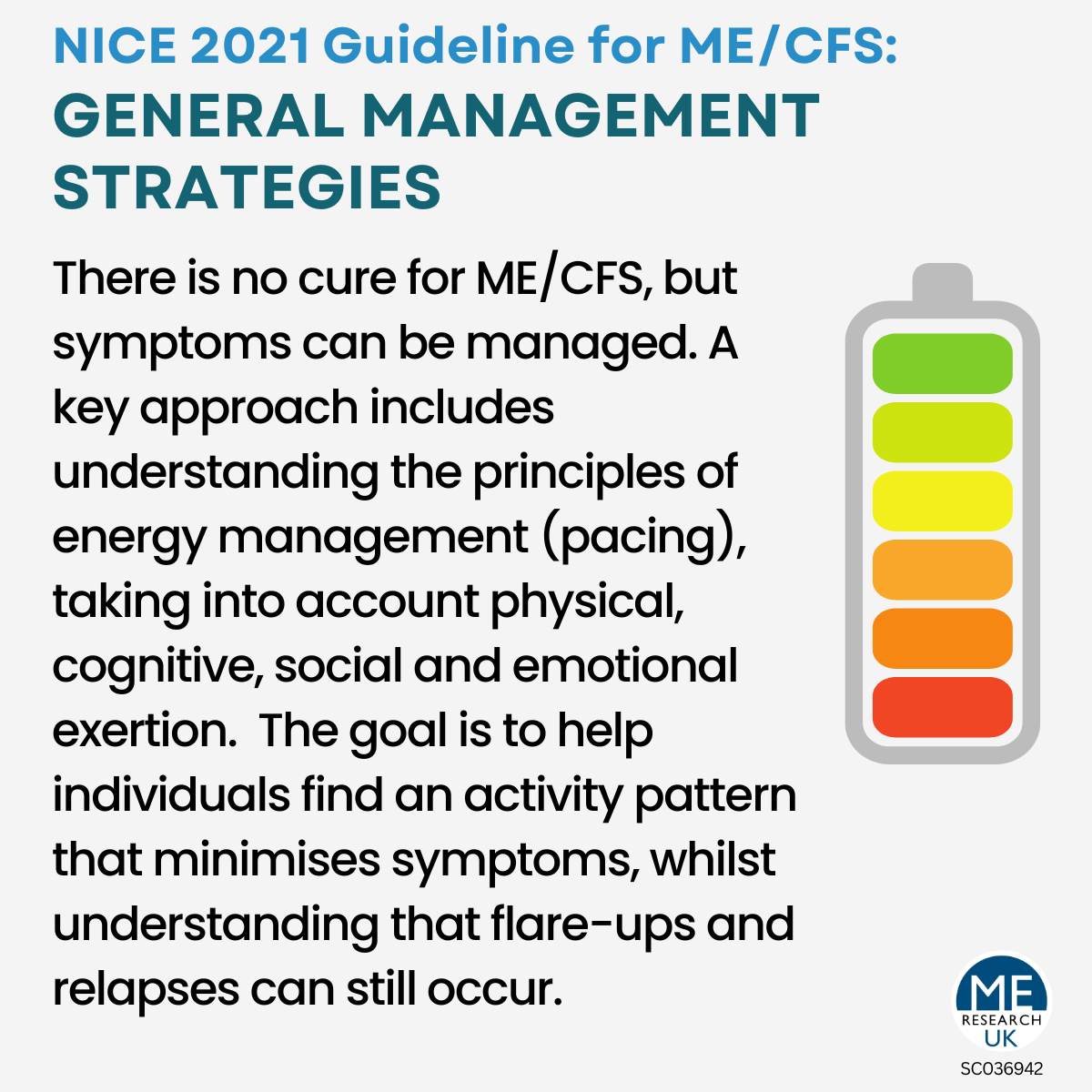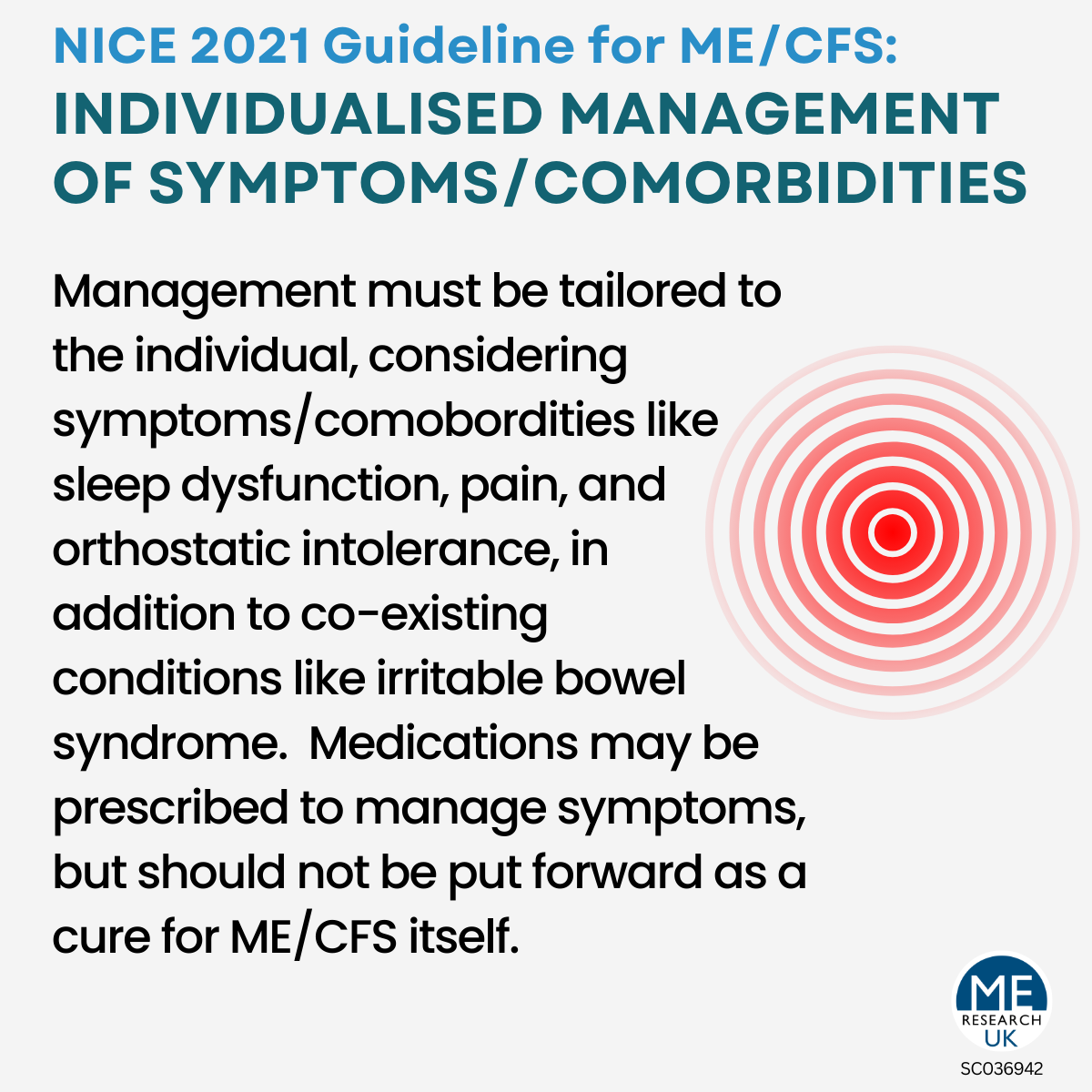There is no cure or treatment for ME/CFS, but there are approaches that can help people manage the symptoms of the disease, as recommended in the 2021 NICE guideline.
The primary and most essential approach is an individual treatment plan, which considers the complex and fluctuating nature of the disease. Heathcare professionals ought to agree a personalised care and support plan with the person with ME/CFS and their family or carers (as appropriate) and informed by their holistic assessment. This to include support for daily activities, mobility, living aids and adaptations – as required.
Health professionals should discuss the benefits and risks of any treatment(s) offered to people with ME/CFS, and the agreed treatment plan should be reviewed regularly.
Energy management
The 2021 NICE guideline for the diagnosis and management of ME/CFS – which guides clinical practice in England – recommends that people with the disease use a personalised “energy management” strategy that considers cognitive, physical, emotional and social activity.
Energy management is “A self-management strategy that involves a person with ME/CFS managing their activities to stay within their energy limit, with support from a healthcare professional.”
Pacing is one example of an energy management technique for ME/CFS.
While the NICE guideline recognises that energy management is not curative, it is thought to “help people learn to use the amount of energy they have while reducing their risk of post-exertional malaise or worsening their symptoms by exceeding their limits“.
Many people with ME/CFS find that managing their energy helps them to live with the illness day to day, and a variety of coping strategies are available that can make a real difference. Moreover, early recognition that pushing through exertion can worsen symptoms has also been identified as “critical for better management of the disease”.
The value of wearable devices such as fitness trackers for monitoring measures including heart rate variability and step counts has also been observed. Not only can they assist in energy management strategies but may help “empower” people with ME/CFS in self-managing symptoms of the disease.
In a study by Thornton and colleagues, participants with ME/CFS stressed that “pushing through exertion, especially on ‘crash’ days, worsens symptoms, and early recognition of this is critical for better management or recovery“.
Symptom management
While no drug treatment has been found to be a safe and effective cure for ME/CFS, some may help manage specific symptoms of the disease, such as sleep disturbances, pain, headaches, abdominal symptoms and balance disorders. However, as evidence from clinical trials in ME/CFS is lacking, NICE further emphasises a “cautious approach to medicines prescribing“.
Pain associated with ME/CFS should be managed by health professionals using best practice and referral to specialist pain management as appropriate. In addition, people with ME/CFS should be provided with personalised sleep management advice to help with sleep issues that may make ME/CFS symptoms worse.
Equipment such as a wheelchair or a stairlift may also help people with ME/CFS with daily living. Health professionals should also guide individuals with the disease on how to access the necessary benefits and social care services.
NICE recognises the importance of balanced nutrition and adequate hydration, as well as discussing strategies to mitigate the risk of complications such as bed sores, and the prevention of further decline in function.
Importantly, people with ME/CFS should not be offered any therapy based on physical activity or exercise as a cure for the disease. In addition, talking therapies, such as cognitive behavioural therapy (CBT), may help some people with ME/CFS adjust emotionally to living with the disease, but CBT does not directly treat ME/CFS.
Overall, the effective management of ME/CFS involves a coordinated and multidisciplinary approach that is tailored to the individual needs of the person with the disease.
None of us at ME Research UK are in a position to offer any specific advice or help on treatments.




